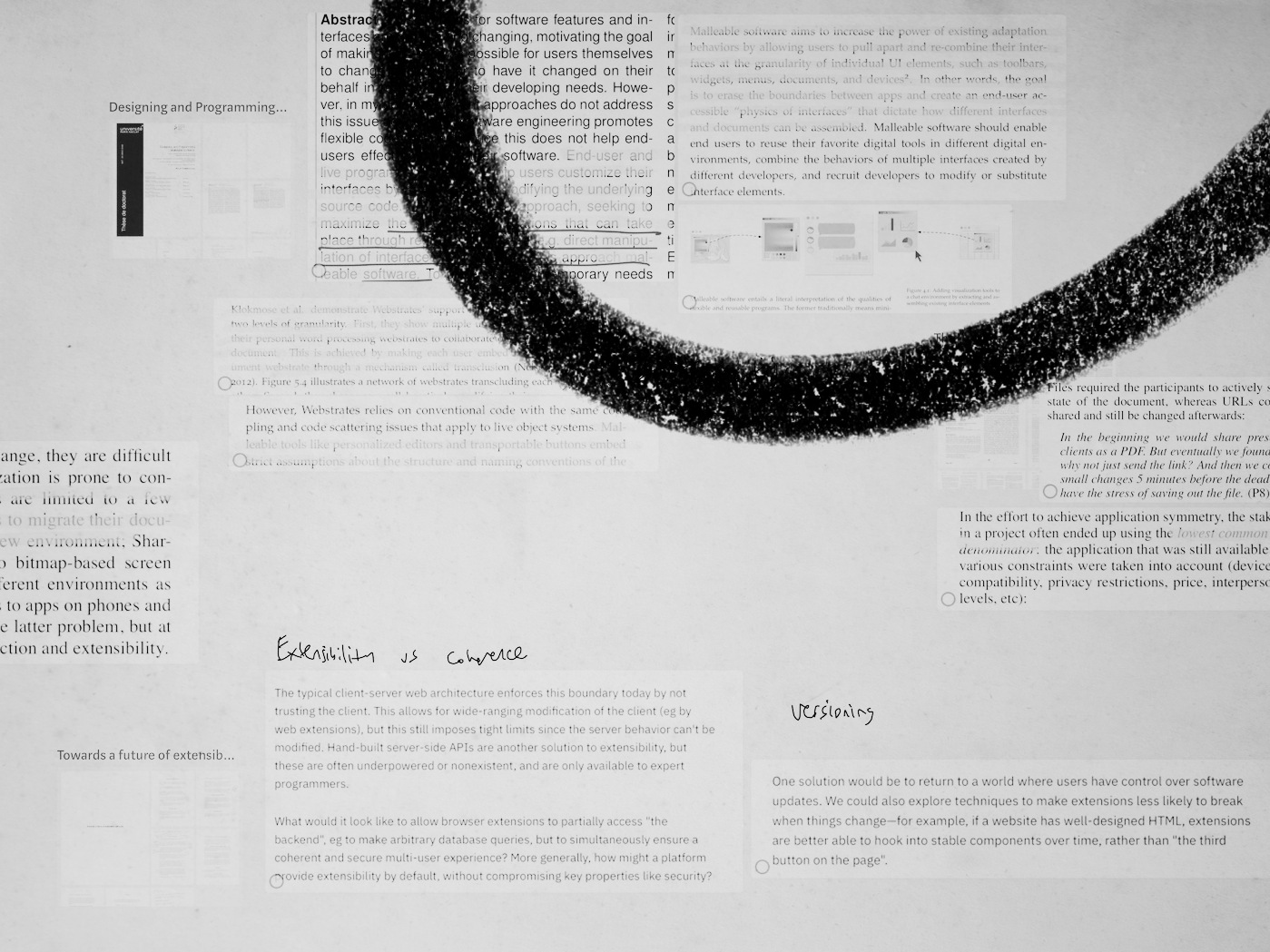This is a free preview of a subscribers-only post.
Welcome back to Action Items a series in which we condense and extend interviews with interesting people into actionable bullet points — only for paid subscribers.
👉 Today’s Action Item is 997 words or 4 minutes and 59 seconds of actionable reading.
Geoffrey Litt spends all day inventing the future of software.
He's a software engineer and PhD candidate at MIT, and he believes everyone should be able to customize and extend the software they use every day—even if they can't program.
The problem with software today, he thinks, is that it's the same for everyone—like a hotel room we rent for the night. Instead, he wants to move us toward a world where software is like a home we own: infinitely extensible, customizable, and personal—even if you can't program.
It's an ambitious vision, at once utopian and practical. It's just on the edge of achievable without being crazy—which means, in my opinion, Geoffrey has a good chance of succeeding. But it's going to take a long time.
And that's what makes him so interesting. He operates on a different timescale from the typical startup drumbeat of finding a problem to solve, and then scaling as quickly as possible. Instead, he knows he's after something that will take a decade of deep thought and quiet iteration to realize. It comes across in the way he speaks—ask him a question and he doesn’t rattle off the first thing that comes to mind, or something that sounds like his next TEDx presentation. He’ll pause, take a moment, and really consider his answer.
My question is this: how does someone like Geoffrey see into the future and then work to build it?
In the rest of this interview we go through Geoffrey's research process. We talk about how he takes notes on what he reads, how he writes his papers, and the projects that have come out of the research he's done thus far.
Let's dive in!
🧠 He keeps his calendar open for deep work
Geoffrey structures his schedule to support going deep into big research projects. Here’s his strategy:
- Keep two to three days a week open for deep work on projects—schedule nothing else on the calendar
- Stack meetings and conversations into two to three days a week
- Use a paper notebook to sketch out the day, specifically an emergent planner
- Identify three major goals for the day
- Schedule the day by estimating how long each goal will take to accomplish and blocking out the time to do so using 15-minute increments
Geoffrey acknowledged that academia makes it much easier to control his schedule and stick to deep work days than it was when he was at a startup.
🐇 🕳 Reading and research
To connect the dots between concepts and make big leaps...

